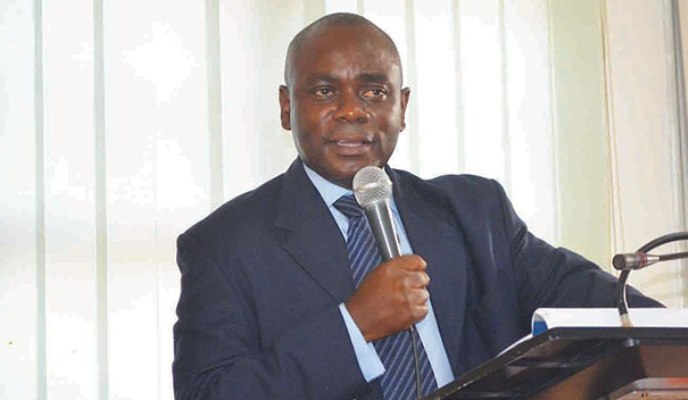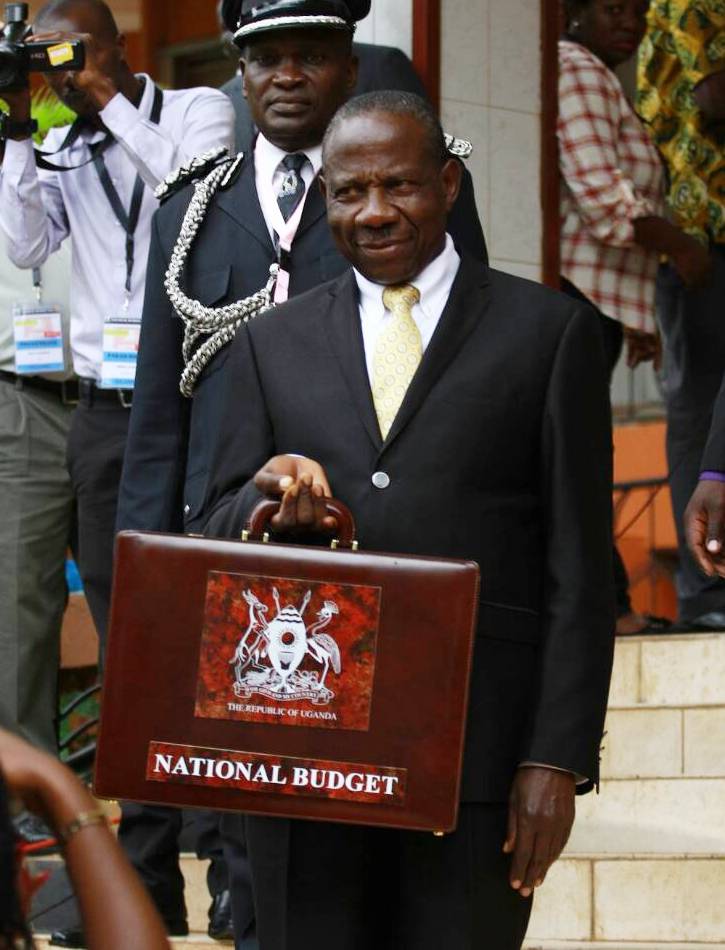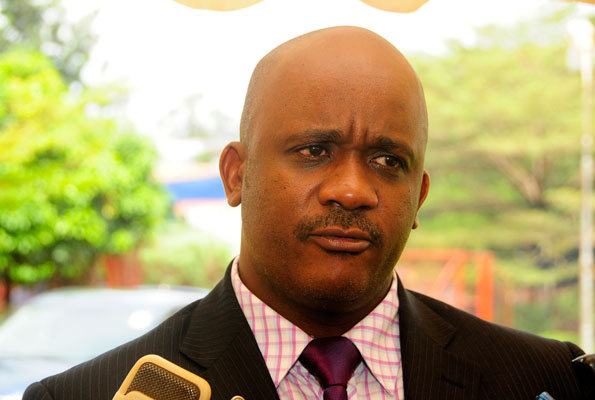Dr Fred Muhumuza says the pessimism is uncalled for
The government plans to spend 490 Billion Shillings under the new Parish Model project that is meant to eradicate poverty among 68 per cent of households across the country.
However, questions from the public point to more pessimism than optimism as to how successful the model will be.
The proposal by the Ministry of Finance, Planning and Economic Development, which is now before parliament aims to have development activities planned for and executed at the parish, as the lowest level unit for planning and development.
It is another step in the search for the fruits of the decentralization system of administration, which devolved significant responsibilities from the centre to the local governments in 1992.
With now more resources and responsibilities planned to be put at the parish level, it is expected that the rates of growth and development will be higher, with more people expected to transform from subsistence to commercial production.
According to the ministerial statement, the Parish Development Model (PDM) is a strategy for organizing and delivering public and private sector interventions for wealth creation and employment generation at the parish level as the lowest economic planning unit.
This would also ensure more jobs created, and support more Ugandans to increase their demand for goods and services.
“The pandemic has reminded us of the urgent need to speed up our national efforts to rapidly grow the share of Ugandans in the monetized economy where effective demand is generated to support industrial growth.
We must do so without compromising the need to grow the quality and quantity of our exports to regional and international markets,” says the statement to parliament by Matia Kasaija, the Minister for Finance, Planning and Economic Development.
The proposal is finding resistance from different sections of the population, with some saying there was no piloting of the programme or that the pilot done was not adequate. Others are equating the model to other failed programs.
But Economist and University don Dr Fred Muhumuza says the pessimism is uncalled for. He says the model is part of the decentralization process and that some sectors are already implementing it.
Dr Daniel Kasibule, the President of Uganda Veterinary Association welcomes the model saying it is long overdue. He says it will make service delivery easier and especially for sectors that offer services to the grassroots communities like vet services.
He cites Village Health Teams which he says are an example that if the veterinary services were taken at least to the Parish, it would improve delivers. He laments that instead, during reforms in the early 1990s, they were re-centralized to the districts.
One of the main highlights of the model is the planned revolving fund for each parish, worth 38 Million Shillings, which makes it 403 Billion Shillings for the 10,594 parishes in Uganda.
The government says the wealth funds have been successful but encountered many bottlenecks. These include failure to implement the programs across all areas or parishes at a go and failure to directly contribute to the industrialization and food security agenda.
The ministry also admits that the funds generally suffer from high administrative costs and that their services are relatively expensive for their intended beneficiaries.
This has also necessitated the need to reform the policies governing these funds.
The Parish Development Model is made up of seven pillars, to be implemented by both public and private sector institutions at the central and local government levels. They include production, processing and marketing, infrastructure and economic services and financial inclusion.
The others are social services, community data (Community Information System), governance and administration as well as mindset change mainly to help subsistence peasants to change their attitude towards commercial production.
According to Kasaija, the goal of the PDM is the socioeconomic transformation for wealth creation and employment generation at the parish level, and it is expected to lift households out of a hand-to-mouth economy.
“Performance against this goal will be measured by the share of households who graduate into the non-subsistence economy. This share will be monitored and reported on at parish, district and national levels.”
The Government has identified and prioritized the development of eighteen commodities under the Parish Development Model, which are considered to be highly marketable locally and internationally.
They include Coffee, Fish, Cotton, Diary, Bananas, Tea, Beans, Cocoa, Beef, and Cassava. Others are Vegetable and Oil, Palm, Avocado, Maize, Shea, Nut, Rice, Cashew Nuts, Sugar Cane and Macadamia Nuts.
Leaders in different areas including political and private sector leaders have cited the lack of adequate markets as the main disincentive to production.
The country, especially the agriculture sector, has always suffered a lack of ready markets, leading to losses and discouragement from further production. The ministry notes this and says, the model also caters for the promotion of small and medium enterprises to take up the surplus production from the parish.
Successful implementation of the Parish Development Model requires ready market and value addition for the production surplus from the parish.
It also plans to foster a competitive business environment by ensuring a stable and low-cost business environment capable of attracting private investment and boosting exports.
The ministry will also mobilize SME financing by aligning micro-financing strategies at the parish level with financing strategies for SMEs, cooperatives and industrialists at the zonal and national levels.
Under the Parish Model, the Chief Administrative Officer, CAO, will be tasked with the responsibility to achieve a sustainable production surplus of the applicable commodities by the parishes in the districts.
On financing, of the model, the ministry will establish and capitalize the Parish Revolving Fund, supervise parish-based SACCOs by the Uganda Microfinance Regulatory Authority and Capitalise constituency-based SACCOs under the Presidential Initiative for Wealth Creation and Jobs (EMYOOGA).
This is intended to ensure that there is no loss of value of money. The government will allocate more funds to further capitalise the Parish Revolving Fund in the subsequent financial years of the NDP III period, which could correspond with the population of a parish, as opposed to the initial uniform of 38.16 Million Shillings.
In the financial year 2022/23 and the medium term, the specific amount of funds to be allocated to the Revolving Fund of the respective parishes will be determined using the share of households in the subsistence economy by Sub County and affirmative action for special groups (women, youth and Persons with Disabilities).
Under the financial inclusion pillar, the PDM will be financed through an amalgamation of the NAADS, PRDP, Luwero- Rwenzori Development Programme, Operation Wealth Creation (Agri-Led) and the Uganda Coffee Development Authority seedlings project.
-URN






PDM is n will be a good programme because it will benefit all people at grassroot. Peasants and even middle income earners will benefit since they are n will be the initiators of the projects where they wish to invest their money. But today 1st July 2021, when the PDM programme is to be laughed by govt, the whole country is not informed!!! No sensitization at all from TVs n radios!! Let Cadres , teachers n all MPs n cauncellors be contacted by Min , of Local govt n Min .of finance, trained and they go to the grassroot train people what to do. I looking forward to see Uganda transformed from peasantry to middle n industrial income status. I can be contacted on 0702544437, to volunteer n train the traineers.